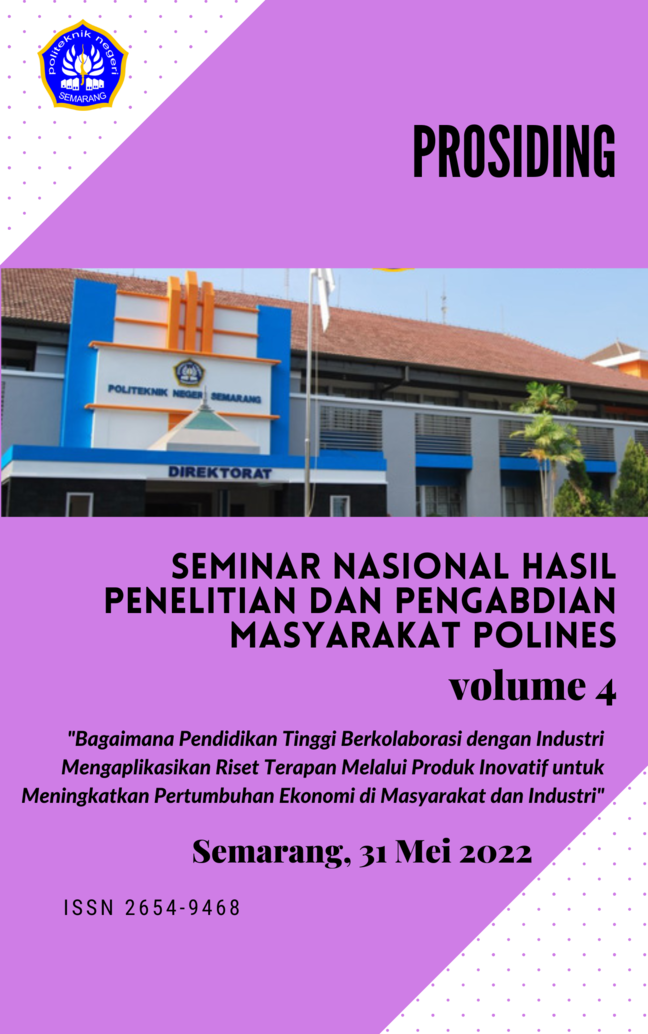PENERAPAN DIGITAL MARKETING UNTUK MENINGKATKAN PENJUALAN UKM GITAR DI KAB. SUKOHARJO YANG TERDAMPAK COVID 19
Keywords:
Guitar, SMEs, Digital Marketing, ROIAbstract
The guitar industry in Sukoharjo Regency has developed very well and has contributed quite a lot to the APBD so that it is designated as a Regional Leading Product. It's a shame that at this time when the Covid 19 pandemic outbreak is rampant, the guitar industry, which is mostly in the form of SMEs, is experiencing a tremendous impact. Many of them had to stop operating because they could not sell their products. On the other hand, in the Industry 4.0 era, many businesses experienced good growth during the pandemic thanks to the implementation of Digital Marketing. It would be interesting if we could get data and patterns from the application of this digital marketing to be able to help the guitar industry which is in trouble. The research was conducted using an experimental approach, which means we take one sample object to be given digital marketing treatment. Within the specified timeframe, in this study an effort was made to build digital marketing through social media and the Digital Toko web. The data collected is then processed to compare the feasibility of investing between those who use digital marketing and those who do not so that the impact of implementing digital marketing is known.
Digital marketing development begins with building Social Media through popular media, namely FaceBook and InstaGram. This social media is used as a means for communication and promotion of SMEs and their products to the public. For the SME product sales platform, the Online Store Web is used by choosing one provider that has many sellers (more than 570,000), easy, free, can be integrated with social media (facebook and IG), namely Tokotalk. The implementation of the marketing system is done by creating content that is uploaded to social media and efforts to increase followers on IG with the help of follower builder services. The online store is built and integrated into social media. The results of sales in online stores in 2 active weeks obtained sales data which seems to have increased.
An investment analysis was carried out to assess the feasibility of this digital marketing and it was found that the value was low (1.8%/month) but was already higher than the percentage of income from savings in banking (1.3%/month). The feasibility of online marketing using roi analysis shows an acceptable or feasible value.
The conclusion is taken with the assumption of an increase in sales and without looking at production capacity due to time constraints in collecting sales data with digital marketing. This is because the preparation of social media, websites and especially content takes a long time. It is proposed to conduct further research on the basis of marketing media that has been formed for a longer time so that the data obtained is sufficient.
References
Bala, M., & Verma, D. (2018). A critical review of digital marketing. M. Bala, D. Verma (2018). A Critical Review of Digital Marketing. International Journal of Management, IT & Engineering, 8(10), 321-339.
Busca, L., & Bertrandias, L. (2020). A Framework for Digital Marketing Research: Investigating the Four Cultural Eras of Digital Marketing. Journal of Interactive Marketing, 49, 1-19.
Digital Definition from Financial Times Lexicon. (n.d.). Retrieved December 27, 2018, from http://lexicon.ft.com/Term?term=digita
Dodson, I. (2016). The Art of Digital : The Definitive Guide to Creating Strategic, Targeted, and Measurable Online Campaigns. John Wiley & Sons.
Kotler, P., Kartajaya, H., &Setiawan, I. (2016). 4.0: Moving from traditional to digital. John Wiley & Sons.
Kotler, P., & Keller, K. L. (2015). Management + MyLab. Pearson.
MITCHELL, OJMARRH (2015). Experimental Research Design - Wiley Online Library, onlinelibrary.wiley.com Ӽ 9781118519639.wbecpx113
Rayport, J. F., Jaworski, B. J., de Parres Cárdenas, C. V., &MartÃnez, M. A. M. (2001).e-Commerce. McGraw-Hill/Irwin MarketspaceU Boston,MA.
Turban, E., King, D. R., Lee, J. K., Liang, T.-P., & Turban, D. C. (2015). Electronic commerce: a managerial and social networks perspective (Eighth edition, Revised Edition). Cham: Springer
Felix, R., Rauschnabel, P. A., & Hinsch, C. (2017). Elements of strategic social media marketing: A holistic framework. Journal of Business Research, 70, 118-126.






